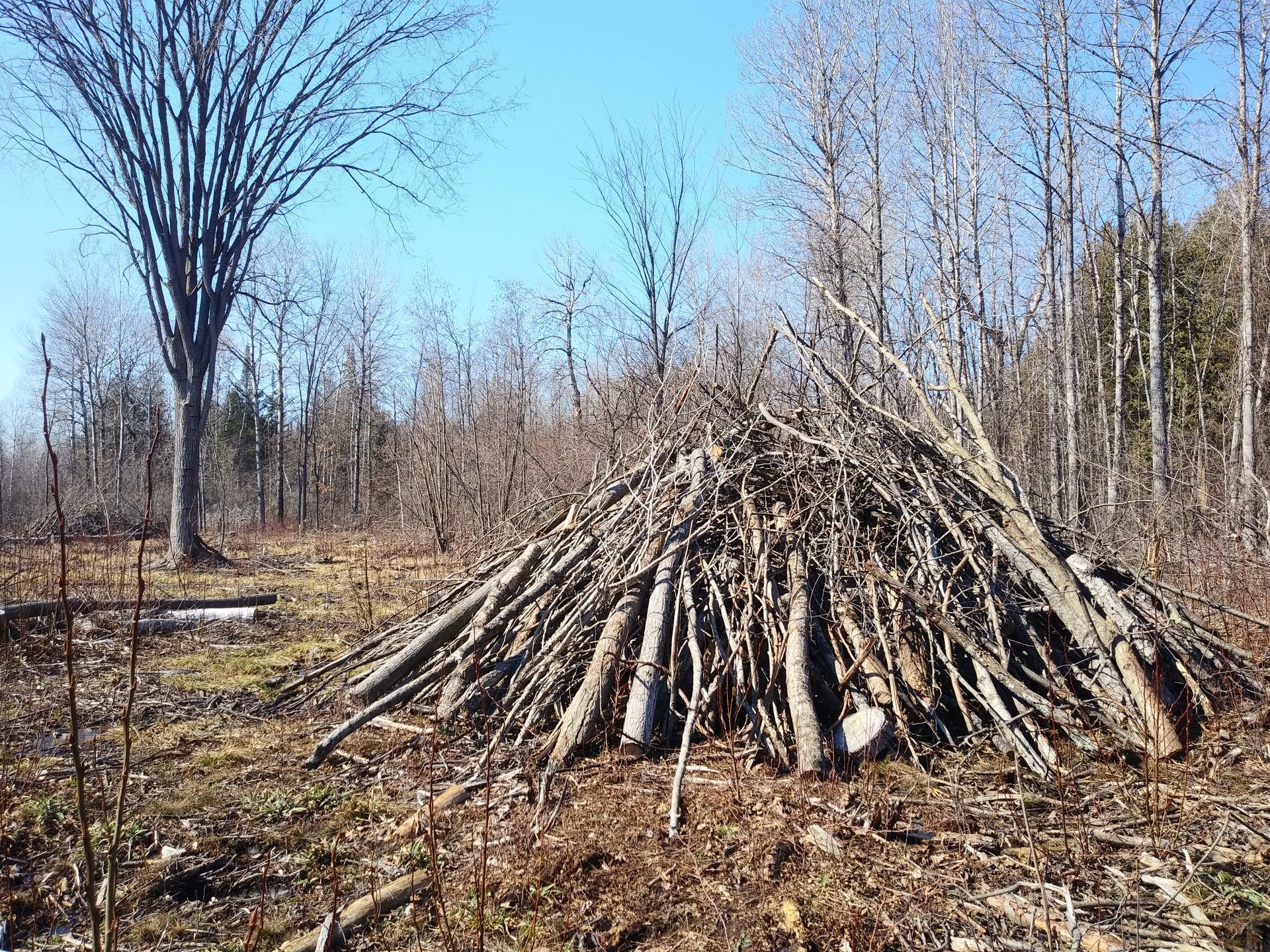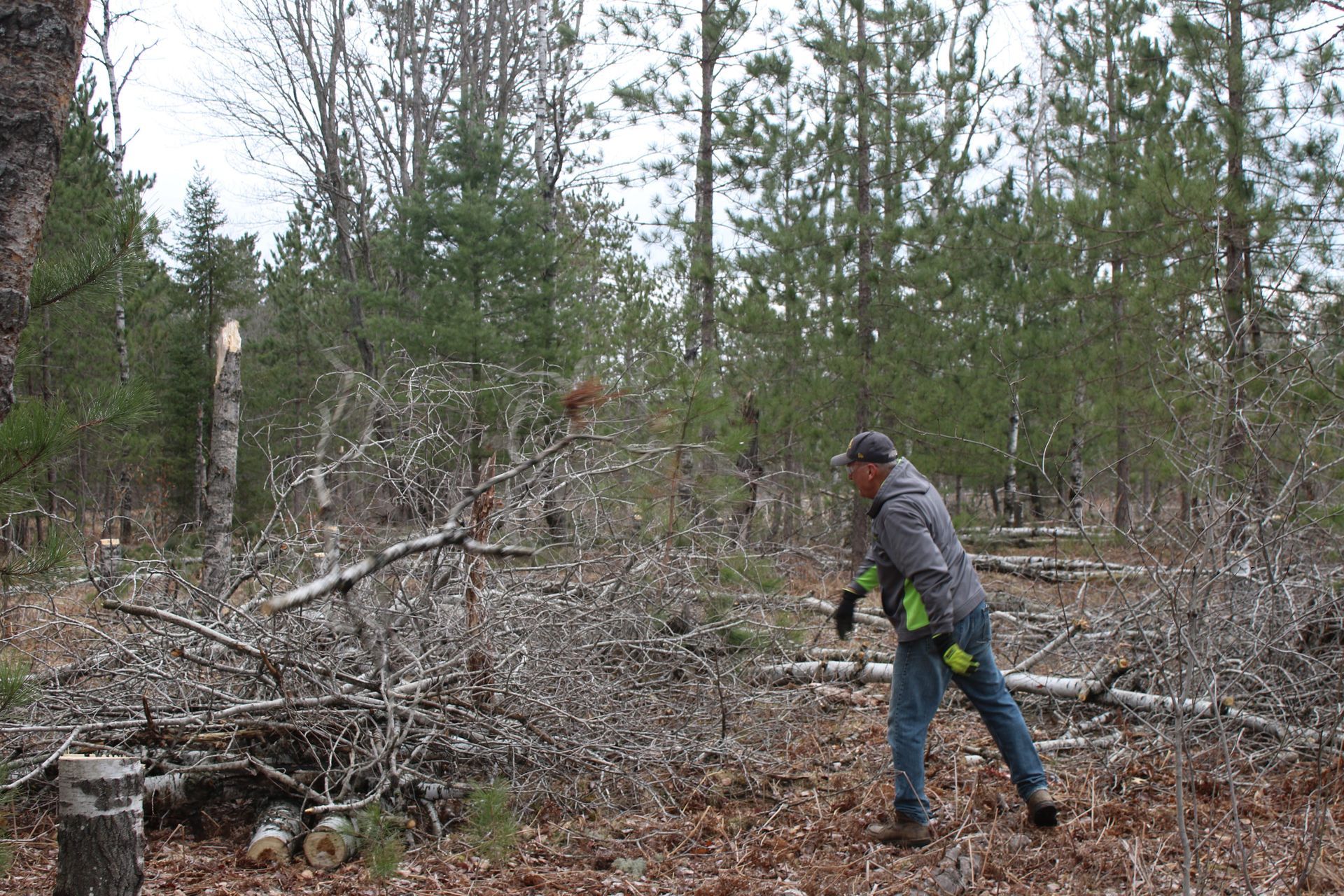On the Ground: Volunteers Build Brush Piles in Kalkaska County
On Saturday, April 27, 2024, MUCC’s On the Ground program once again partnered with Gib King of Land Ethics, LLC to host 8 volunteers for a brush pile building event at the Traverse City Forest Management Unit in Kalkaska County. MUCC has been partnering with Land Ethics, LLC for the last eight years, and through this partnership, a lot of great work has been done to improve wildlife habitat. We hope to continue this work for many more years to come.
Brush Pile Overview
Brush piles are exactly what they sound like: brush that is stacked into a pile. Brush piles offer many benefits to a variety of wildlife species. They provide habitat for rabbits and other small game, as well as snakes and ground-nesting birds. Brush piles also offer suitable hunting grounds for predators such as foxes and birds of prey. Brush piles are commonly called “rabbitat” because rabbits use them so frequently.
A well-constructed brush pile lasts a long time because it can withstand even the toughest of weather conditions. To construct a brush pile, simply stack large logs on the bottom, then pile smaller branches and sticks on top. Ideally, the large logs should be stacked log-cabin style to ensure the brush pile remains stable.

Volunteers Build Brush Piles
Volunteers used existing brush from trees that were cut down to build the brush piles. They rolled large logs and stacked the brush piles high, making sure to use all of the brush on the ground. One of our regular volunteers also brought a chainsaw and bucked up existing trees, which was a huge help. Loppers and handsaws were also useful for cutting the brush into manageable pieces. In total, volunteers built over 100 brush piles and improved 7 acres of wildlife habitat. This is a great accomplishment for only 8 volunteers and we are grateful that they came out to work hard and improve habitat for wildlife!

Upcoming Events
Looking for more ways to get involved with On the Ground? We have several events coming up for the spring and summer season! Details are listed below:
Saturday, May 18, 2024, from 9 AM to 1 PM – Woody Invasive Species Removal for Hunter and Angler Access at Ionia State Recreation Area (register HERE )
Saturday, June 1, 2024, from 10 AM to 2 PM – Oak Tree Planting at an Elk Viewing Area in the Atlanta Forest Management Unit (register HERE )
Saturday, June 8, 2024, from 10 AM to 2 PM – Mast Producing Tree Planting in the Newberry Forest Management Unit (register HERE )
The post On the Ground: Volunteers Build Brush Piles in Kalkaska County appeared first on Michigan United Conservation Clubs.
Recent Posts



